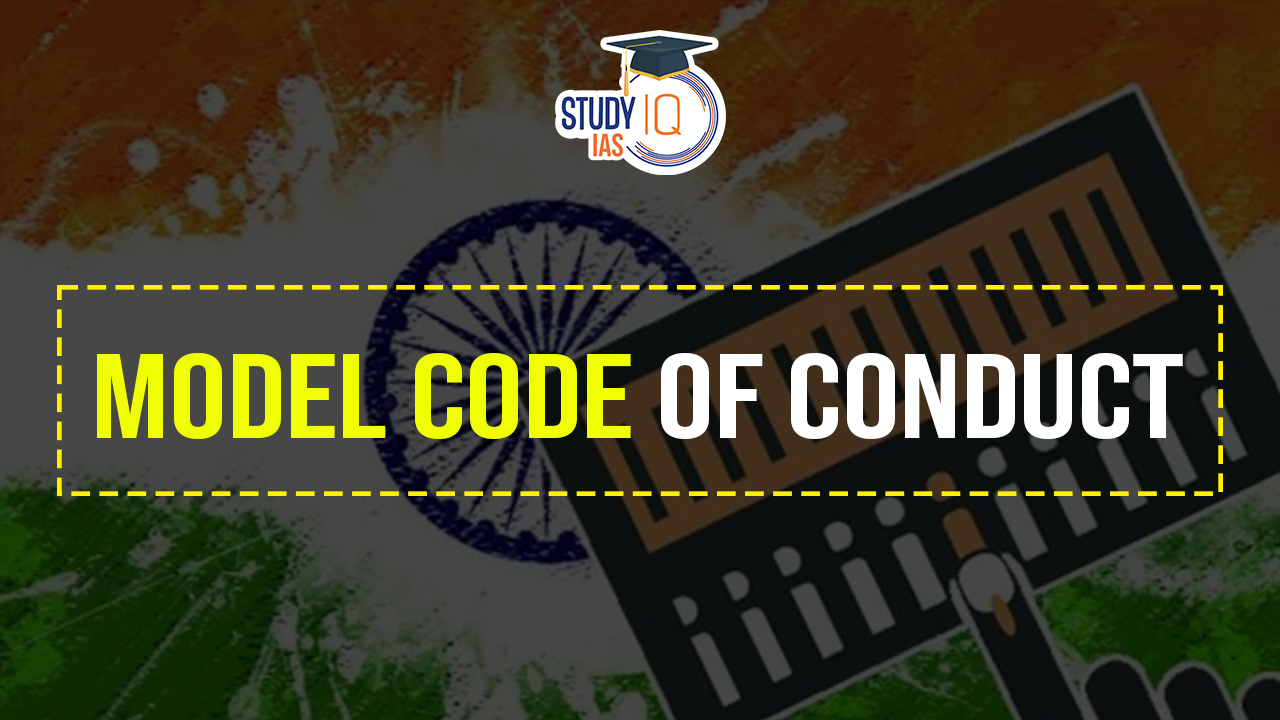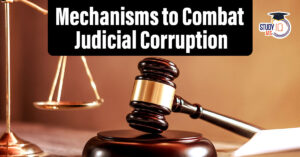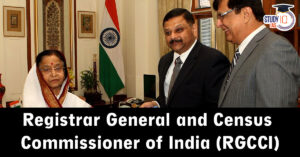Table of Contents
With the announcement of the election schedule by the Election Commission of India (ECI), the Model Code of Conduct (MCC) has come into effect, marking a crucial phase in the democratic process of the country. The MCC serves as a guiding framework aimed at ensuring fair and transparent elections by regulating the behaviour of political parties and candidates. Let’s delve into what the MCC entails and its significance in the electoral process.
What is the Model Code of Conduct?
The MCC is a comprehensive set of guidelines issued by the ECI to govern the conduct of political parties and candidates in the lead-up to elections. It covers various aspects, including speeches, campaigning activities, polling procedures, and the behavior of both parties in power and opposition, with the overarching goal of upholding the integrity of the electoral process.
Model Code of Conduct Overview
| Provision | Description |
| Policy Announcements | Prohibits the party in power from announcing new policies, projects, or schemes that could influence voter behavior. |
| Fair Resource Access | Ensures equal access to public facilities such as venues for rallies and transportation facilities for all political parties, irrespective of their incumbency status. |
| Ministerial Conduct | Ministers are barred from combining official duties with election-related activities and using government machinery for partisan purposes. |
| Ethical Campaigning | Campaigns must refrain from exploiting caste, communal, or religious sentiments to secure votes. Bribing, intimidation, or impersonation of voters is strictly prohibited. |
| Election Silence | Enforces a 48-hour period before polling, during which no campaigning is allowed, providing voters with a campaign-free environment for reflection. |
| Enforcement and Compliance Mechanisms | Relies on moral sanction and censure for enforcement; the Election Commission of India issues notices for alleged breaches, with responses ranging from apologies to written censures. |
Implementation Timeline
The MCC comes into force from the moment the election schedule is announced and remains in effect until the declaration of election results. This duration ensures that all stakeholders adhere to the prescribed norms throughout the electoral cycle, fostering an environment conducive to free and fair elections.
Key Restrictions and Provisions
The MCC imposes several restrictions and provisions on political parties and candidates to maintain a level playing field and prevent unfair practices. Some of the notable restrictions include:
- Prohibition on Policy Announcements: The party in power, whether at the national or state level, is barred from making policy announcements or using government resources for election campaigning. This prevents the misuse of official position to influence voter behavior.
- Fair Access to Resources: Equal access to public facilities, such as venues for election rallies and use of transportation facilities, must be ensured for all political parties, regardless of their incumbency status.
- Code of Conduct for Ministers: Ministers are prohibited from combining official duties with election-related activities or using government machinery for partisan purposes. This ensures the separation of administrative functions from electoral processes.
- Ethical Campaigning: Campaigns must refrain from appealing to caste, communal, or religious sentiments to garner votes. Additionally, bribing, intimidation, or impersonation of voters is strictly prohibited to uphold the integrity of the electoral process.
- Election Silence: A 48-hour period before polling, known as “election silence,” is enforced to provide voters with a campaign-free environment for reflection before casting their votes.
Enforcement and Compliance
While the MCC lacks statutory backing, the ECI relies on moral sanction and censure to enforce compliance. The commission can issue notices to parties or individuals for alleged breaches of the code, with responses ranging from unconditional apologies to written censures. Although punitive actions are rare, the ECI has the authority to impose bans on individuals found to be violating the MCC, as seen in past instances.
Model Code of Conduct UPSC
The Model Code of Conduct (MCC) is a comprehensive set of guidelines issued by the Election Commission of India (ECI) to regulate the behavior of political parties and candidates during elections. It prohibits the party in power from making policy announcements, ensures fair access to resources, and mandates ethical campaigning practices. Enforced from the announcement of the election schedule until the declaration of results, it aims to uphold the integrity of the electoral process. Despite lacking statutory backing, compliance is enforced through moral sanction, with the ECI issuing notices for breaches and potential bans for violators. It fosters an environment conducive to free and fair elections.


 International Days List of 2025, Importa...
International Days List of 2025, Importa...
 Mechanisms to Combat Judicial Corruption...
Mechanisms to Combat Judicial Corruption...
 Registrar General and Census Commissione...
Registrar General and Census Commissione...





















